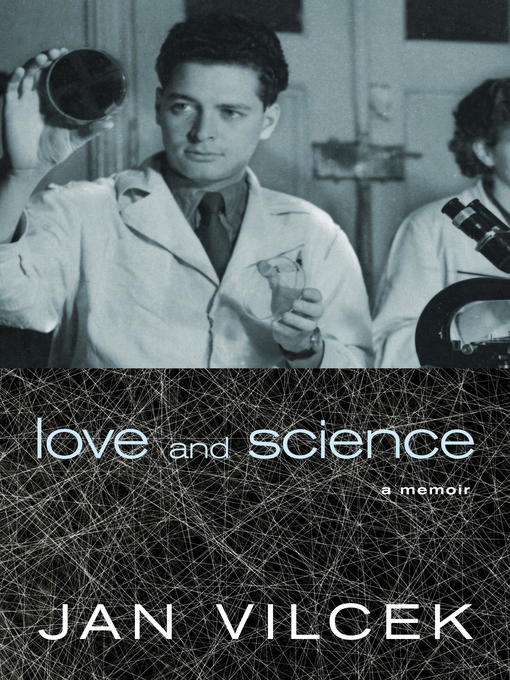After his arrival in the US in 1965 as a penniless refugee, he soon went on to spearhead some of the key advances in the research of interferon that enabled its therapeutic application, and through his research into tumor necrosis factor (TNF) made advances that led to the discovery of new genes and proteins and signaling pathways, opening up previously uncharted areas of medical innovation that have led to important new treatments for a wide range of autoimmune and inflammatory diseases. Along the way Vilcek acquired material wealth he had never aspired to, catapulting him into the world of philanthropy.
Love and Science shows how advances in science sometimes result from the greatest disappointments, and how achievement in medical research is usually a team effort, where ideas are shared, where friendship and love sometimes matter most and serendipity is as important as a will to succeed—and where, over time, the least expected thing sometimes becomes the most important. In Vilcek's case the vaunted cure for cancer that many saw in TNF never materialized. However, out of the ashes of that hope came many related treatments that have changed countless lives and alleviated much suffering.
-
Creators
-
Publisher
-
Release date
December 20, 2016 -
Formats
-
OverDrive Read
- ISBN: 9781609806699
- File size: 9233 KB
-
EPUB ebook
- ISBN: 9781609806699
- File size: 9233 KB
-
-
Languages
- English
-
Reviews
-
Kirkus
December 1, 2015
A memoir of the extraordinary life and circumstances that led the author to the groundbreaking discovery of Remicade, which successfully treats two previously untreatable autoimmune diseases, Crohn's disease and rheumatoid arthritis.In 2013, Vilcek (editor: American Odysseys: Writings by New Americans, 2012, etc.) was awarded the National Medal of Technology and Innovation by President Barack Obama for his discovery, which utilized a protein naturally produced in the human body's defense system against tumors. In that year, Remicade was reported to be "the second-highest selling drug in the world, with sales of $10.1 billion." Born in 1933 to a middle-class Jewish family in what is now Slovakia, Vilcek and his family were among the relatively few Jews to escape the Holocaust while remaining in Czechoslovakia. In his estimate, this was due to the family's decision to convert to Catholicism and his father's position as a business executive. In 1948, Czechoslovakia was taken over by communists, and the author and his family were forced to adjust to the new totalitarian regime. After attending medical school, Vilcek married and pursued a research career in the upcoming field of virology. He established contacts with Western researchers who facilitated the publication of his work. Despite the fact that he had launched a productive career, he and his wife wanted to escape the oppressive political regime. With help from Western friends, Vilcek was invited to join the faculty at New York University's School of Medicine, where he ran his own laboratory. His continued effort to find a treatment for autoimmune diseases proved successful and resulted in the commercial development of Remicade, which received FDA approval in 2000. His share of royalties has allowed him and his wife to sponsor careers in science and the arts. Vilcek artfully joins the chronicle of his scientific work and the dramatic events that punctuated his life under two totalitarian regimes, culminating in his flight to freedom. An inspiring page-turner.COPYRIGHT(2015) Kirkus Reviews, ALL RIGHTS RESERVED.
-
Formats
- OverDrive Read
- EPUB ebook
Languages
- English
Loading
Why is availability limited?
×Availability can change throughout the month based on the library's budget. You can still place a hold on the title, and your hold will be automatically filled as soon as the title is available again.
The Kindle Book format for this title is not supported on:
×Read-along ebook
×The OverDrive Read format of this ebook has professional narration that plays while you read in your browser. Learn more here.

